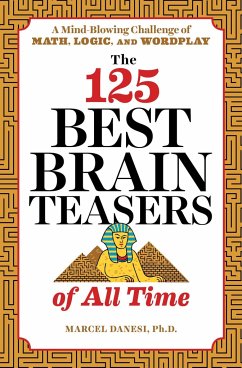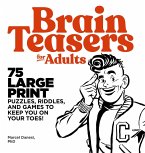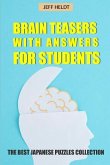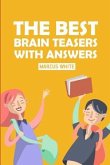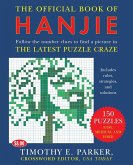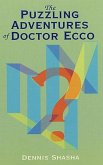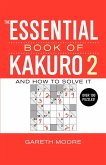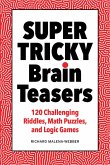Put your noggin to the test with the most famous brain games of all time! Puzzles and brainteasers can be found throughout history and around the world (did you know that coded messages date all the way back to 2500 BCE?). This book collects 125 of the most popular and challenging mind-benders for hours of fun-filled entertainment that can sharpen your creative thinking skills. Get ready to dive into famous math, logic, and word puzzles like Odd One Out, Fibonacci's Legacy, the Polybius Cipher, and more. Bring it on road trips, to family game night, or give it as a gift, and get everyone involved in the puzzle-solving fun! * Fun for anyone—You don't need any special skills to solve these puzzles, and clues and answer keys are there to help you if you get stumped. * 5 challenge levels—A wide variety of puzzle types and challenge levels ensures there's something to solve for puzzle masters of all ages and skills. * Hints of history—Every time you tackle a new puzzle, you'll learn fun facts about where it comes from and how long it's been around. Get ready to sharpen your mind with the ultimate book of mind-blowing brain teasers.
Hinweis: Dieser Artikel kann nur an eine deutsche Lieferadresse ausgeliefert werden.
Hinweis: Dieser Artikel kann nur an eine deutsche Lieferadresse ausgeliefert werden.

